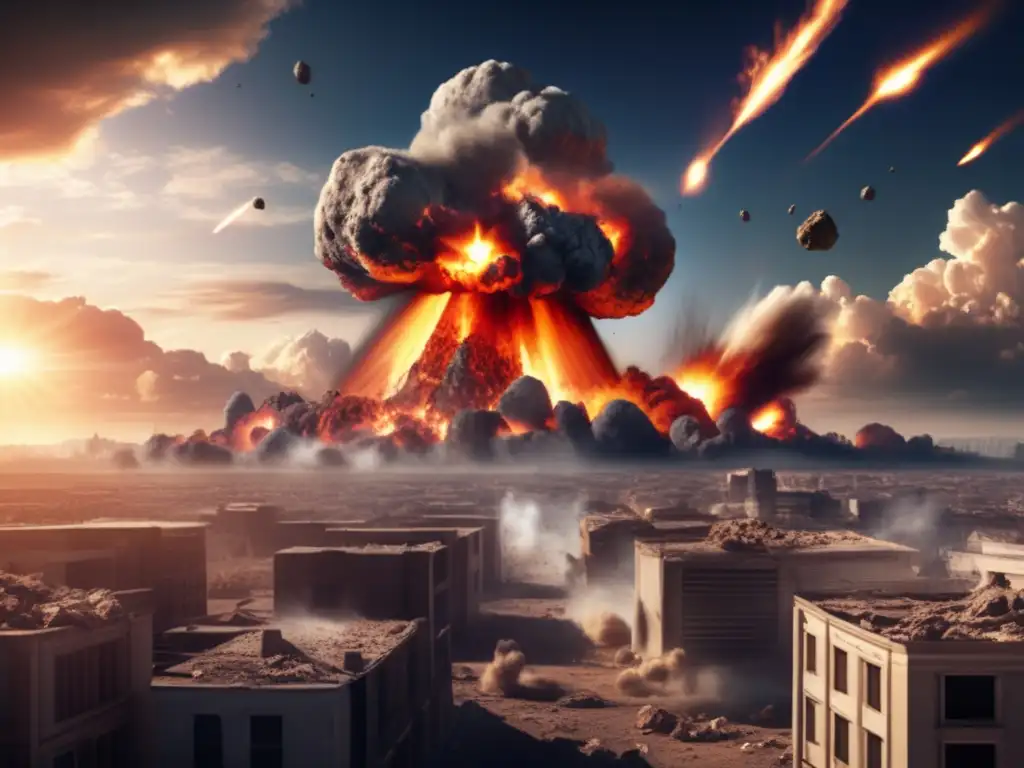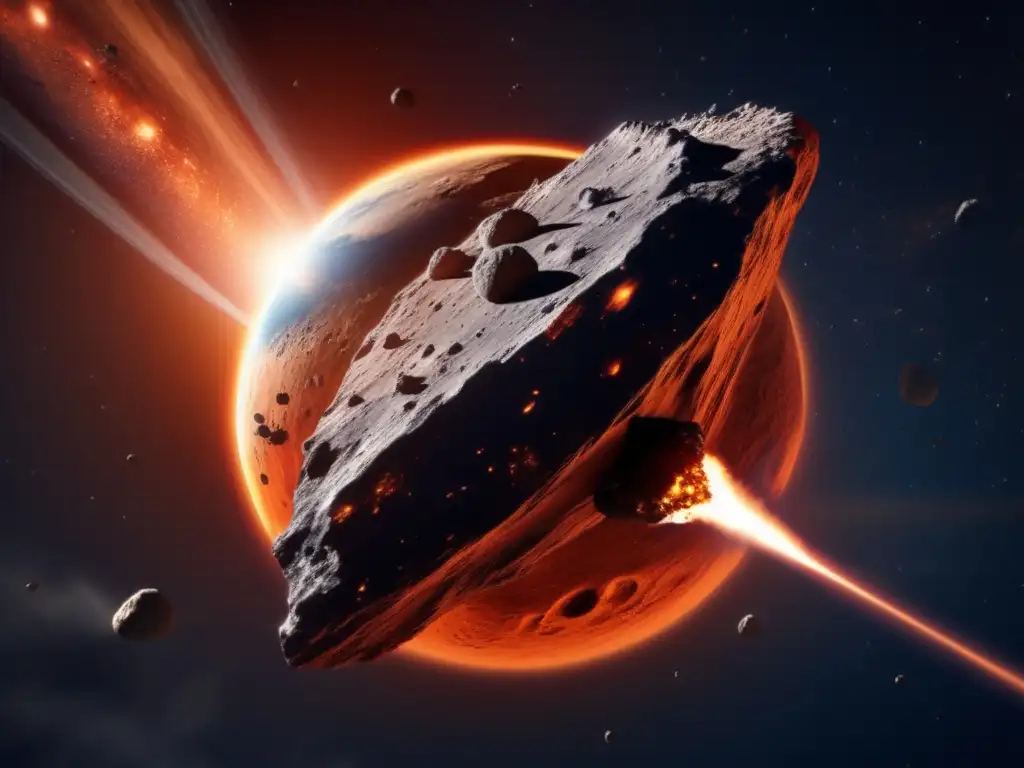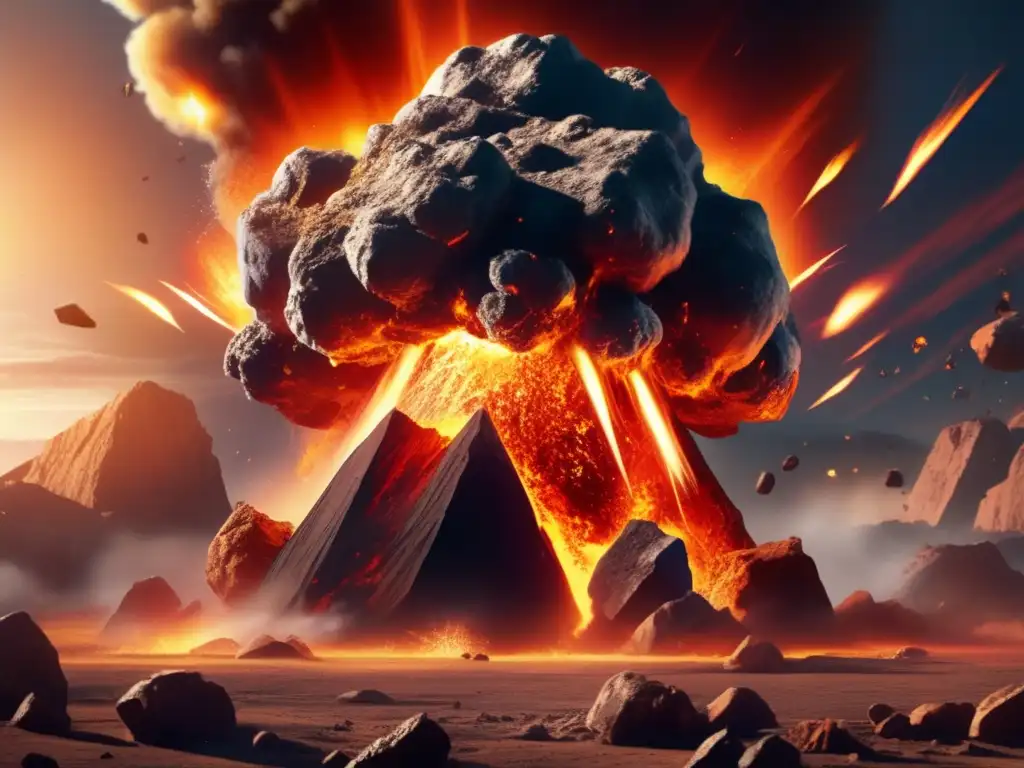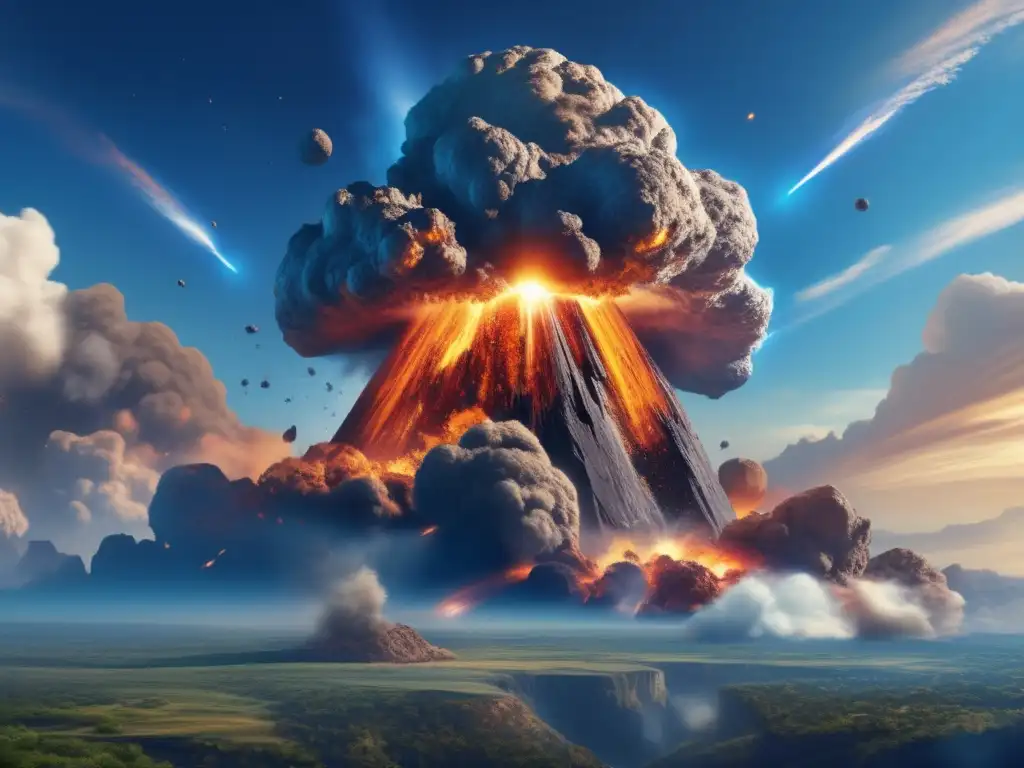Cosmic Calamities: Understanding Asteroid Impact Consequences

Introduction
Asteroids are fascinating celestial objects that can provide valuable information about our solar system's formation and evolution. However, some asteroids pose a significant threat to Earth if they were to collide with our planet. The consequences of an asteroid impact can range from local damage to global devastation, depending on several factors such as the asteroid's size, speed, and angle of impact. In this article, we will explore the potential consequences of asteroid impacts and what can be done to prepare for these cosmic calamities.
The Effects of Asteroid Impacts

The Impact Crater
When an asteroid collides with Earth, it releases a tremendous amount of energy in a short period, creating a massive explosion. The impact crater is the depression formed on the ground where the asteroid hits. The size and depth of the crater depend on the asteroid's size, speed, and angle of impact. For example, a small asteroid less than 30 meters in diameter may create a crater less than 10 meters deep, while a large asteroid more than one kilometer in diameter can produce a crater several kilometers wide and hundreds of meters deep.
Shock Waves
The asteroid's impact generates shock waves that spread out from the site of impact, causing damage in the surrounding area. The intensity of the shock waves depends on the asteroid's size and speed, as well as the distance from the point of impact. The shock waves can break windows, knock down trees, and even level buildings.
Tsunamis
If an asteroid impacts in the ocean, it can generate a tsunami, a series of ocean waves that can travel long distances and cause devastating damage when they hit the shore. The size of the tsunami depends on the asteroid's size, speed, and angle of impact, as well as the depth of the ocean at the impact site.
Firestorms
The intense heat generated by an asteroid impact can ignite fires in the surrounding area, leading to a firestorm. Firestorms are particularly dangerous as they produce their winds that can spread fires quickly and unpredictably, engulfing entire cities and communities.
The Potential Risks of Asteroid Impacts

Local Devastation
Small asteroids less than 30 meters in diameter can cause local devastation if they impact populated areas. These asteroids can destroy buildings and infrastructure, kill and injure people, and cause significant economic damage.
Regional Devastation
Larger asteroids between 30 meters and one kilometer in diameter can cause regional devastation if they impact populated areas. These asteroids can create massive craters, generate tsunamis, and cause extensive damage to infrastructure and essential services within several hundred kilometers of the impact site.
Global Catastrophe
Asteroids larger than one kilometer in diameter can cause global catastrophe if they impact Earth. These asteroids can trigger a series of events that can cause widespread destruction, including massive fires, tsunamis, shock waves, and a thick dust cloud that covers the planet's surface, blocking sunlight and causing a "nuclear winter." Such an impact could result in the extinction of many species, including humans.
Preparing for Asteroid Impacts

Asteroid Detection
To prepare for asteroid impacts, scientists must detect and track potentially hazardous asteroids. Several organizations worldwide, such as the European Space Agency (ESA) and NASA, are responsible for detecting space objects capable of impacting Earth and issuing warnings. These organizations use telescopes and other instruments to observe near-Earth objects and calculate their trajectories to determine if they could pose a threat.
Impact Mitigation
Once an asteroid is detected, several strategies can be used to mitigate or deflect its impact. Some of these strategies include:
- Kinetic impactor: A spacecraft could be launched to impact the asteroid, altering its trajectory and avoiding a collision with Earth.
- Gravity tractor: A spacecraft could be used to fly near the asteroid, using its gravitational pull to change the asteroid's course.
- Nuclear detonation: A nuclear device could be used to explode near the asteroid, altering its trajectory.
Frequently Asked Questions

-
Can we predict when an asteroid will impact Earth?
Yes, scientists can predict when and where an asteroid will impact Earth with some accuracy, depending on the asteroid's size, speed, and trajectory.
-
How often do asteroids impact Earth?
Asteroids impact Earth more frequently than most people realize. However, most are small enough to burn up in the atmosphere and pose no danger to humans.
-
What is the most significant asteroid impact in history?
The most significant asteroid impact in history was the Chicxulub impact that occurred 66 million years ago, causing the extinction of the dinosaurs and many other species.
-
What countries are most vulnerable to asteroid impacts?
All countries are vulnerable to asteroid impacts, but some areas such as coastal regions and densely populated cities may be more at risk.
-
Can we stop an asteroid from impacting Earth?
Yes, several strategies can be used to deflect or mitigate an asteroid's impact, including kinetic impactors, gravity tractors, and nuclear detonations.
Conclusion
Asteroid impacts are potential cosmic calamities that could cause significant damage and loss of life. However, by detecting and tracking potentially hazardous asteroids and developing effective impact mitigation strategies, we can reduce the risks posed by these objects. It is essential to increase public awareness of the potential consequences of asteroid impacts and support scientific efforts to protect our planet from these cosmic hazards.
Share your thoughts on asteroid impacts in the comments below. Follow www.asteroidrealm.com for more fascinating insights into the world of asteroids, their history, and cultural significance.
Additional Resources

 Bracing For Impact: The Potential For Future Asteroid Strikes
Bracing For Impact: The Potential For Future Asteroid Strikes Impacts In Ice: Tracing Ancient Asteroid Strikes In Antarctica
Impacts In Ice: Tracing Ancient Asteroid Strikes In Antarctica The Asteroid Menace: Assessing Earth's Cosmic Risk
The Asteroid Menace: Assessing Earth's Cosmic RiskIf you want to discover more articles similar to Cosmic Calamities: Understanding Asteroid Impact Consequences, you can visit the Asteroid Impacts category.
Leave a Reply

Articulos relacionados: